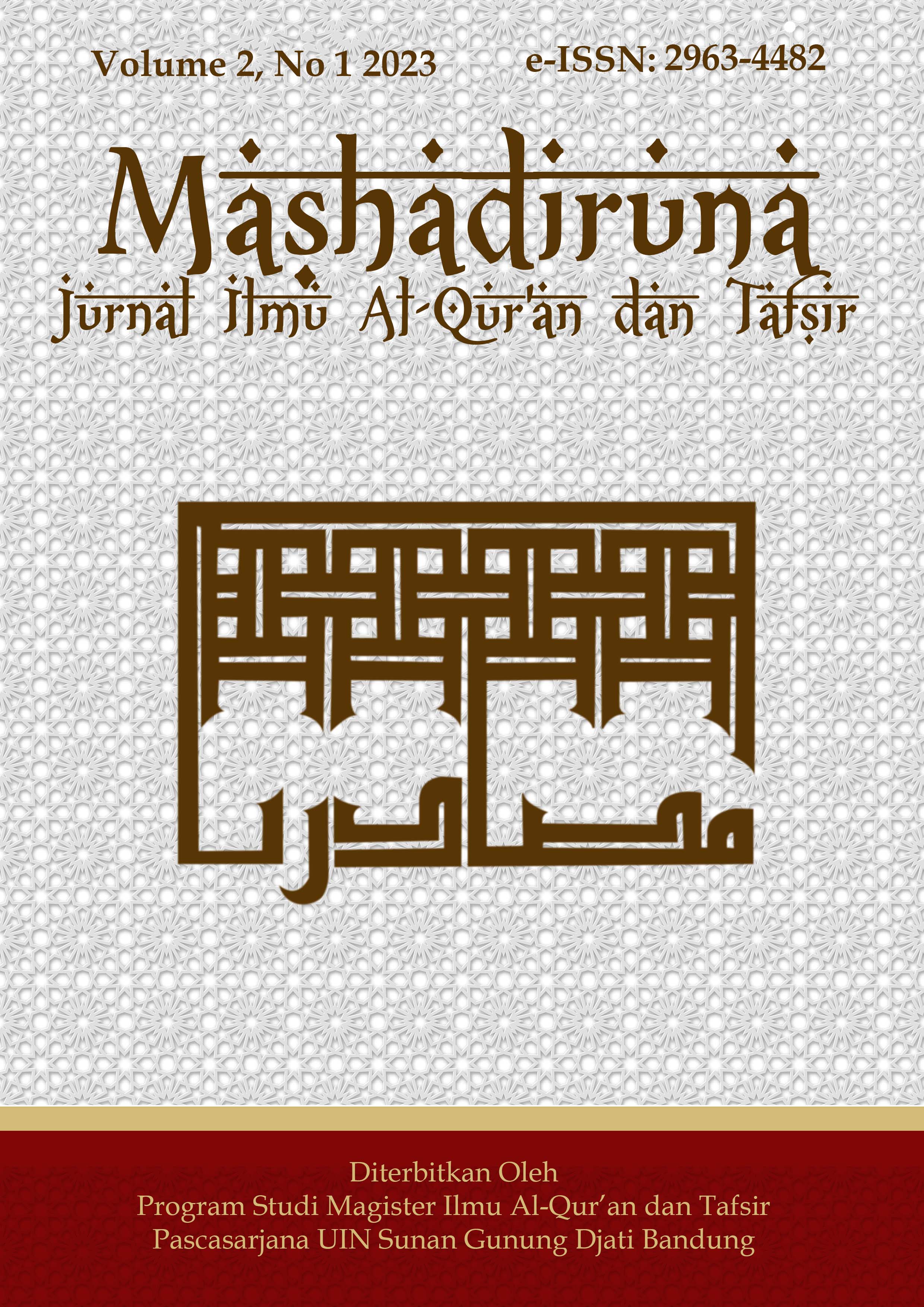Methodology of the Book of the Holy Qur'an and The Massage of Qur'an: A Comparative Study of the Book of Tafsir by A. Yusuf Ali and Muhammad Asad
DOI:
https://doi.org/10.15575/mjiat.v2i1.20129Keywords:
Methodology of Tafsir, The Holy Qur'an, The Massage of Qur'an, A. Yusuf Ali, Muhammad Asad.Abstract
The study of the methodology of interpreting the Qur'an is one of the disciplinary studies in the field of Qur'anic Science and Tafsir. His studies have always been literature that animates the discourse of interpretation. The more mushrooming the development of scientific Tafsir of Tafsir among the public, the more widespread the products of this interpretation are developing. Even not only in the original language—namely Arabic, but the development of the science of interpretation of the Qur'an has met its new reality, where variants of the interpretation of books from various languages have begun to appear. One of them is an English commentary, such as the one initiated by Abdullah Yusuf Ali and Muhammad Asad. This study aims to analyze the methodology of the book of Tafsir The Holy Qur'an by A. Yusuf Ali and The Massage of the Qur'an by Muhammad Asad. This research is a qualitative research with descriptive analysis approach. The results of this study show that the interpretation methods of Ali and Asad have similarities, including in: first, sources based on ra'i; second, methods of interpretation of ijmali and third, display of interpretations using footnotes. The difference between the two lies in the style of interpretation, then the features of the template in the interpretation.
References
Al-Farmawi, A. H. (1977). Al-Bidâyah Fî At-Tafsîr Al-Maudhû’î. Maktabah Al-Hadharah Al-Arabiyah.
Al-Hitari, A. (2022). The underlying esoteric Ismaili doctrine in Abdullah Yusuf Ali’s translation of the Quran. International Journal of Linguistics and Translation Studies, 3(3), 125–145.
Al-Tufayl, Q. A. D., & Karam, M. A. (2022). Structuring Emphasis In Arabic And English: The Case Of Abdullah Yusuf Ali’s And Muhammed Asad’s Translations Of The Holy Quran. Journal of Positive School Psychology, 6(11), 2814–2821.
Al Refaai, M. (n.d.). Problems of Translating Prepositions in Surat Al-Baqarah: A Contrastive Study of Abdullah Yusuf Ali’s, Mohsin Hasan Khan’s, and Marmaduke Pickthall’s Translations. Yarmouk University.
Ali, A. Y. (1983). The Holy Qur’an: text and translation. The Other Press.
Ali, A. Y. (2003). The Meanings of The Holy Qur’an. Surah, 90, 8–20.
Amaliya, N. K. (2018). Arah Metodologi Tafsir Kontemporer. Qalamuna, 10(1), 75–99.
Arifin, Z. (2015). A Critique Study Of Tafseer Inspiration’s Method’s On Qur’anic Commentary.
Asad, M. (1980a). The Message of the Qur’an, Translated and Explained. Gibraltar: Dar-Al-Andalus.
Asad, M. (1980b). The Message of the Qur’Än. Dar al-Andalus Gibraltar.
Asad, M. (2001). My Discovery of Islam. Goodword Books.
Asad, M. (2021). Jilid 1-Risalah al-Quran-Muhammad Asad. Islamic Renaissance Front.
Iraqi, A. (2018). Linguistic Challenges in the English Translation of Surat Maryam: A Comparison between Yusuf Ali’s and El Hilali & Khan’s Versions. The Koranic Discourse & Translation Challenges The Second International Symposium, November 28th & 29th, 2018.
Jauharin, K. (2014). Directive In English Translation Of Qur’an Surah Albaqarah By Abdullah Yusuf Ali. Kudus: Universitas Muria Kudus (Unpublished).
Mardhatillah, M. (2018). Diction And Contextualization of The Jews Verses In The Holy Qurâ€TM an; Text, Translation And Commentary of Abdullah Yusuf Ali. DINIKA: Academic Journal of Islamic Studies, 3(3), 383–396.
Maududi, S. A., Qutb, S., Asad, M., Ali, A. Y., Von Denffer, A., Murad, K., & Miller, G. (n.d.). Comprehensive Book List: For Advanced Study of Islam.
Nugroho, I. Y., Zainul, I., Genggong, H., & Probolinggo, K. (2020). Orientalisme dan Hadits : Kritik terhadap Sanad Menurut Pemikiran Joseph Schacht. Jurnal Hukum Islam, 6(2), 2548–5903.
Rosyad, R., Rahman, M. T., Setia, P., Haq, M. Z., & Pr, R. F. B. V. (2022). Toleransi dan Perdamaian di Masyarakat Multikultural. Prodi S2 Studi Agama-Agama UIN Sunan Gunung Djati Bandung.
Setia, P. (2022). Islam di Dunia Maya dalam Perspektif Gary R. Bunt. Jurnal Iman Dan Spiritualitas, 2(2), 291–294.
Setia, P., & Syarif, D. (2022). Reviewing the Role of the Coordinating Board for Campus Da’wah Institutions (BKLDK) In Spreading Radicalism. Al-Tahrir: Jurnal Pemikiran Islam, 22(2), 295–324.
Sherif, M. A. (1994). Searching for Solace: A Biography of Abdullah Yusuf Ali, Interpreter of the Qur’an (Issue 165). Searching for Solace.
Silverman, D. (2015). Interpreting qualitative data. Sage.
Zulaiha, E. (2016). Tafsir Feminis: Sejarah, Paradigma dan Standar Validitas Tafsir Feminis. Al-Bayan: Jurnal Studi Ilmu Al-Qur’an Dan Tafsir, 1(1), 17–26.
Downloads
Published
Issue
Section
License
Authors who publish with this journal agree to the following terms:
- Authors retain copyright and grant the journal right of first publication with the work simultaneously licensed under a Creative Commons Attribution License that allows others to share the work with an acknowledgment of the work's authorship and initial publication in this journal.
- Authors are able to enter into separate, additional contractual arrangements for the non-exclusive distribution of the journal's published version of the work (e.g., post it to an institutional repository or publish it in a book), with an acknowledgment of its initial publication in this journal.
- Authors are permitted and encouraged to post their work online (e.g., in institutional repositories or on their website) prior to and during the submission process, as it can lead to productive exchanges, as well as earlier and greater citation of published work (See The Effect of Open Access).
